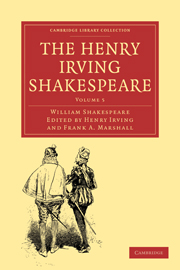1 - ALL'S WELL THAT ENDS WELL
Published online by Cambridge University Press: 29 August 2010
Summary
INTRODUCTION
LITERARY HISTORY
All's Well That Ends Well was first printed in 1623 in the First Folio. In the entry of this volume in the Stationers' Register, November 8th of that year, it is enumerated among such plays as had not been previously entered to other men. This is the first time we hear of the play under its present name, and the period at which it was first produced is therefore purely a matter of conjecture. The theories here put forward are substantially those received by most modern critics, but every reader is at liberty to form his own opinion.
Francis Meres, in the list of Shakespeare's plays which he gives in the well-known passage of his Palladis Tamia (1598), mentions a comedy entitled Love labours wonne, and this immediately following Love labors lost. No other mention of this comedy has ever been found, and since Mere's testimony to its existence is unimpeachable, we are left to make the best conjecture we can as to its fate. Has it been lost, or is it one of the plays which we now know by another name 1 That Love's Labour 's Won, an undoubted work of so popular a dramatist as Shakespeare, should have utterly disappeared, while Love's Labour's Lost has survived, is very unlikely; and there is every probability that, if it had so far escaped the printer, there would have been an acting copy in existence which the editors of the First Folio would have secured. But they have printed no play under this name, and we must, therefore, conclude that it is in some sense or other identical with one of the existing plays.
- Type
- Chapter
- Information
- The Henry Irving Shakespeare , pp. 1 - 76Publisher: Cambridge University PressPrint publication year: 2009First published in: 1889

